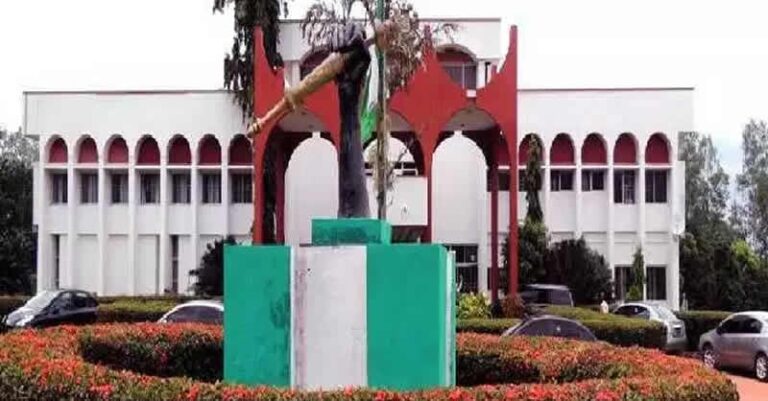
In a significant move that promises to reshape the landscape of Nigeria’s fuel pricing, MRS Petroleum has announced a nationwide reduction in the price of petrol to N935 per litre. The decision, which marks a sharp departure from the prevailing rates, has sent shockwaves through the sector, igniting discussions on its potential economic and social ramifications. But beyond the headline, this price cut is about more than just numbers — it’s a reflection of evolving market dynamics, corporate strategy, and government policy.
—
The Price Cut: A Game-Changer for Nigerian Consumers?
On December 24, 2024, MRS Petroleum, one of Nigeria’s leading oil marketing companies, unveiled the new price of petrol, effectively slashing it by a substantial margin. This move, coming amidst rising concerns over inflation and the cost of living, is expected to offer some relief to consumers who have long been grappling with the high cost of fuel. The new price, down from an average of N1,150 per litre, is a significant reduction that could ease transportation costs and have a ripple effect on the prices of goods and services across the country.
MRS Petroleum’s spokesperson, Adebayo Oguntunde, explained the rationale behind the move: *“This adjustment is in response to the volatile oil market, but we remain committed to our consumers and believe that lowering prices at this time will offer much-needed respite to Nigerians.”
—
Enforcing Compliance: What Does This Mean for Retailers?
While the price reduction is hailed as a win for consumers, MRS Petroleum is also enforcing strict compliance with the new price directive at all retail outlets. The company has stated that it will monitor compliance across its network of stations and take action against any distributors or retail outlets found to be charging above the stipulated price.
In a country like Nigeria, where price manipulation at the pump is not uncommon, ensuring adherence to the new pricing regime will require close oversight. MRS has promised to leverage both technological tools and on-the-ground monitoring teams to ensure that fuel stations follow the new pricing structure. *“We are not only adjusting prices at our stations but are committed to ensuring full compliance through our monitoring system,”* said Oguntunde.
The Nigerian government has also expressed support for the price reduction, with the Department of Petroleum Resources (DPR) indicating that it would collaborate with MRS Petroleum to ensure proper enforcement and transparency in the process.
—
The Economic Impact: A Double-Edged Sword?
The announcement of a lower petrol price is sure to have wide-reaching economic effects. On the one hand, it is expected to reduce the burden on Nigerian households, especially those relying on fuel for daily transportation and small businesses. The hope is that cheaper petrol will contribute to a reduction in inflationary pressures, which have been exacerbated by high fuel prices in recent years.
However, some experts have raised concerns that the price cut could strain Nigeria’s already fragile oil sector. Dr. Amina Sule, an economist at the University of Lagos, cautioned that the reduction in fuel prices might not be sustainable in the long run. “While the price cut is welcomed by consumers, it could lead to challenges in the oil and gas sector, especially if global oil prices rise or if there are logistical issues in the supply chain. The government needs to balance short-term relief with long-term stability.”
Additionally, with the country’s reliance on oil exports and the vulnerability of its national revenue to global price fluctuations, maintaining a stable pricing structure remains a key challenge.
—
A Broader Context: Government’s Role in Fuel Price Regulation
The reduction by MRS Petroleum also raises questions about the role of the Nigerian government in regulating fuel prices. Since the deregulation of the petrol sector in recent years, the government’s role has shifted from setting specific prices to influencing the market through policies, subsidies, and agreements with marketers. This change in approach has sparked debates about the effectiveness of deregulation and its impact on both consumers and the economy.
While some argue that deregulation opens the market to competition and price flexibility, others contend that it leaves consumers at the mercy of market forces that are often beyond their control. The sudden drop in petrol prices by MRS Petroleum could be seen as a strategic response to market conditions, but without government intervention or policy guidance, there are concerns that such adjustments could be short-lived.
—
What’s Next? Prospects and Challenges for Nigeria’s Fuel Market
Looking ahead, there are many questions surrounding the long-term impact of MRS Petroleum’s price adjustment. Will other oil marketers follow suit, or will MRS’s move remain an outlier? What will be the effect on government policy, and how will the nation’s oil production and refining capacity be impacted?
Industry analyst Tunde Alabi suggests that MRS’s decision could trigger a ripple effect across the fuel sector. “Other marketers may feel compelled to follow this lead, especially if MRS’s move proves to be beneficial. However, the government needs to ensure that the price cut does not destabilize the market. A coordinated approach between private companies and the public sector is critical for maintaining price stability.”




